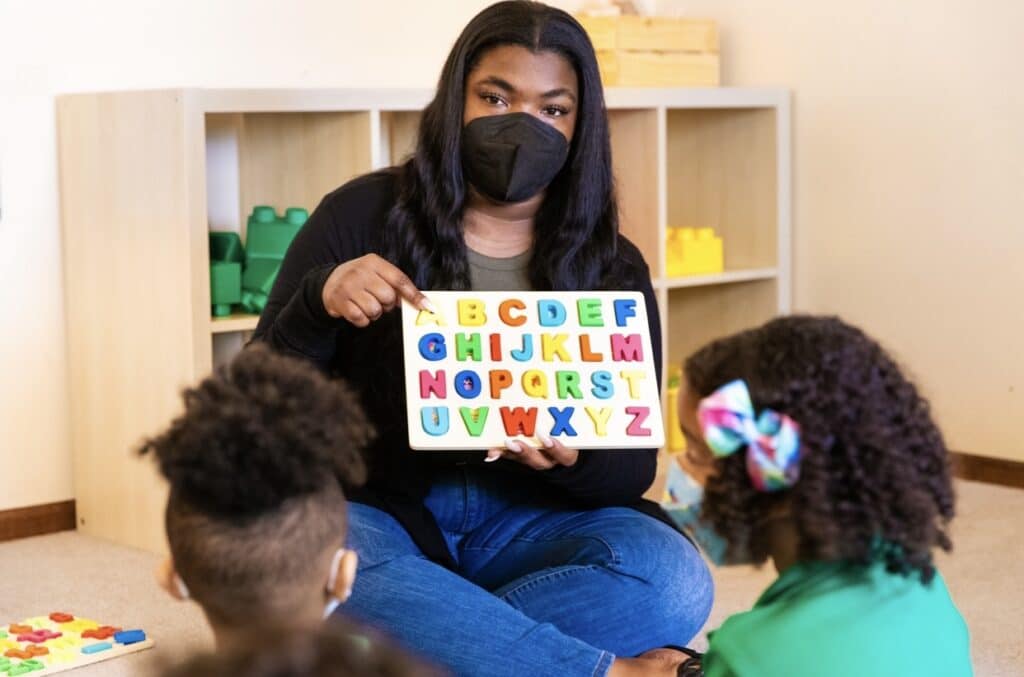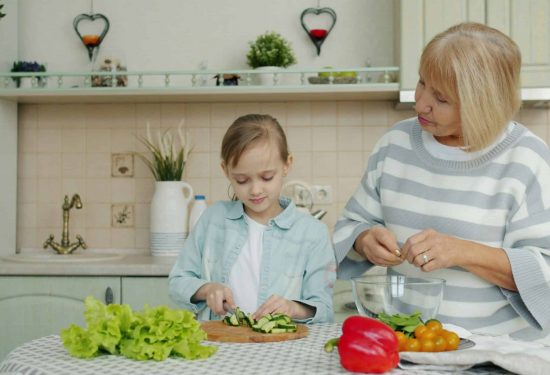“People automatically assume that I’m so qualified to care for children but then when it comes to being a part of decision-making, or providing input and insight or expertise, I’m not looked at as the expert.”
Adesha’s voice noticeably drops as she shares what happens in decision making settings when she speaks up on issues affecting the home-based child care sector. As a Black woman who is both a home-based child care advocate and a provider, she is no stranger to working against systemic barriers. Adesha’s work is based in St. Louis, Missouri, part of the Antebellum South, where there are strong historic and cultural roots to many of the practices that have created the foundation for the inequities many child care providers still face today.
The child care sector in the United States has a complex history. As white families delineated responsibilities for work and labor, white mothers relied on enslaved Black women to provide care to their children. From nurturing to wet nursing, historically Black women were responsible for supporting a large number of the country’s children through caregiving for many decades. This practice of relying on Black women to provide high quality care for children with little to no compensation can still be seen in today’s child care system, which continues to exploit the labor of providers. A large portion of home-based child care providers are Black women. About 40 percent of licensed providers identify as people of color, and nearly half of home-based unlicensed providers identify as such. The average income for a licensed child care provider is $29,377 annually and most providers are working 10 to 12 hours a day on average. Caught in the intersection of racism and sexism, Black women struggle to receive the respect and pay they deserve for the work they do. As Jocelyn Frye states in Racism and Sexism Combine to Shortchange Working Black Women, “The reality is that how work is viewed is frequently based on who is doing the work and what type of work is being performed. Whether the work is done primarily by women versus men or by white workers versus workers of color.” Sexist views continue to permeate the conversation about who bears the responsibility to provide child care, adding another additional layer to the structural racism that undermines the value of child care providers.
Kayanna is a home-based provider in Burlington County, New Jersey and has been a caregiver in some capacity for as long as she can remember. Whether it was caring for family members or her friends’ children, she has always felt like she had a natural ability to care for others and she never expected to be paid for her services. “I was doing it for the love of just helping others,” she quickly says with a warm smile on her face as she thinks back on how long she has been a caregiver. In 2018, when she decided to become a full-time family child care provider she did not expect to be faced with so many obstacles. “I was trying to make a difference in my community by opening up my own home-based child care program so that parents were able to get quality care for their children, and feel a sense of safety when they brought them in.” Kayanna feels like overcoming the many barriers she faces around pay equity and being perceived as a quality provider can be even more challenging because of her race. “As a Black woman, I feel like we are less valued. Because people don’t know how much we do [as family child care providers]. So until you walk in the shoes of being a provider, you will never truly understand what we really face.”
In addition to the challenges around pay equity and respect for the profession, Black women in home-based child care face additional barriers and biases when they are looking to have a seat at the proverbial table and advocate for themselves as well as other home-based providers. When asked about her experience as a Black woman in home-based child care Adesha reflects, “[Historically, Black women] were entrusted to care for everyone’s children, and we did a phenomenal job at caring for everyone’s children. It’s just assumed that we are good at it.”
However, when seeking to be a voice for herself and other providers around funding and access to additional resources for the home-based child care field, Adesha does not feel trusted. “We’re not taken seriously in certain spaces because we’re looked at as the help or less educated, almost like my counterparts are surprised when I come off so eloquently and informed and knowledgeable about certain topics.”
Myra, a home-based provider in Atlanta, Georgia, has not been deterred by the negative perceptions of Black women in the child care sector. As an adolescent she knew she had a gift and a desire to care for children. “I was the family babysitter and then when I became a mom I was the neighborhood lady whose house that everybody’s kids hung out at…and it was a safe space for everyone.” Despite this gift, her family discouraged her from pursuing a career in child care. They viewed child care as low wage labor, reflecting the nation’s disregard for child care providers. Myra pursued other work but her love for the field ensured that she always found part-time and informal ways to provide child care. When she was laid off from her retail job in 2007, she opened her family child care business full-time. Now, when she shows her friends and family pictures of her program, “they are in awe,” Myra states.
Regardless of how hard the journey has been, Myra acknowledges that this is one of the best decisions she has ever made and she couldn’t imagine doing anything else. “Family child care has always been the best career for my lifestyle and personality. Just to be able to support the young children, to have a safe place for them and to hear their laughter, and to know that the babies are being well taken care of. That’s the dream. And I get to be a part of that.”




